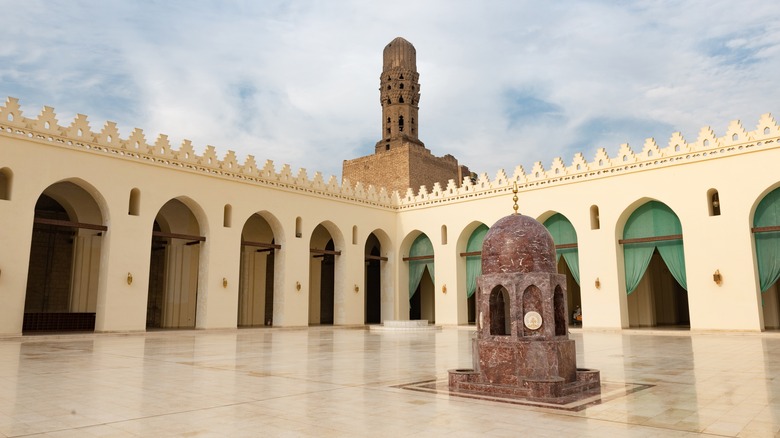The Mysterious Disappearance Of Egyptian Ruler Al-Hakim
Al-Hakim bi-Amr Allah, whose name means the "Ruler by the Order of God," was born in 985 A.D. He was the sixth Fatimid caliph and the sixteenth imam of Ismaili Shiism. Al-Hakim was just 11 years old when he came into power after his father, al-Aziz Billah became ill in 996 A.D. Over the decades, his Egyptian empire grew to include Syria and some of the Arabian Peninsula (via Historia Islamica).
As Al-Hakim came into power, he had a reputation for being erratic and strict, especially toward religious minorities. He enforced severe restrictions on his people, such as forcing residents of Cairo to work at night and banning women from showing their faces in public. Some of his more unexpected edicts included outlawing grapes, catching and eating fish without scales, and playing chess. There are also accounts of him murdering his cousins, Jews, Christians, and even his own soldiers, according to New World Encyclopedia.
Al-Hakim's mysterious disappearance
Because of his unstable temperament, some refer to Al-Hakim as the "Mad Caliph," per World Heritage Encyclopedia. In 1009 A.D., angered by Christians, he ordered the Holy Sepulcher destroyed, according to Historia Islamica. During the last years of his life, Al-Hakim became more ascetic, practicing meditation.
A night in February 1021 A.D. was the last time he was seen alive. Al-Hakim apparently headed out with two officials for his usual night ride in the desert, New World Encyclopedia reports. On this particular evening, he set out for the Muqattam hills in southwest Cairo, but he never made his way back. A search party found Al-Hakim's donkey and his bloodstained clothing, but the mystery of his disappearance was never solved. Historian Dr. Paul Walker wrote in his book, "Caliph of Cairo," that one of Al-Hakim's robes were ripped as if it had been cut with a knife (via Arab News).
No one knows what happened to Al-Hakim
Because Al-Hakim's body was never found, what actually happened to him on that fateful night is left up to conjecture. That said, Walker wrote that it's possible he was confronted by Bedouin tribesmen demanding money. Other theories claim that Al-Hakim chose to abandon the life he knew and live as a "reclusive ascetic," according to Arab News.
Another idea about what happened to the 36-year-old ruler is that he converted to Christianity and "begged forgiveness for his sins and did penitence for many years in the desert," reports New World Encyclopedia. Additionally, there are even some who believe that he entered a state of occultation, which is the belief that he entered heaven without having to undergo a physical death (via New World Encyclopedia). Regardless, Al-Hakim's 16-year-old son, Ali az-Zahir, succeeded him with the help of his sister, Sitt Al-Mulk (via Arab News).


